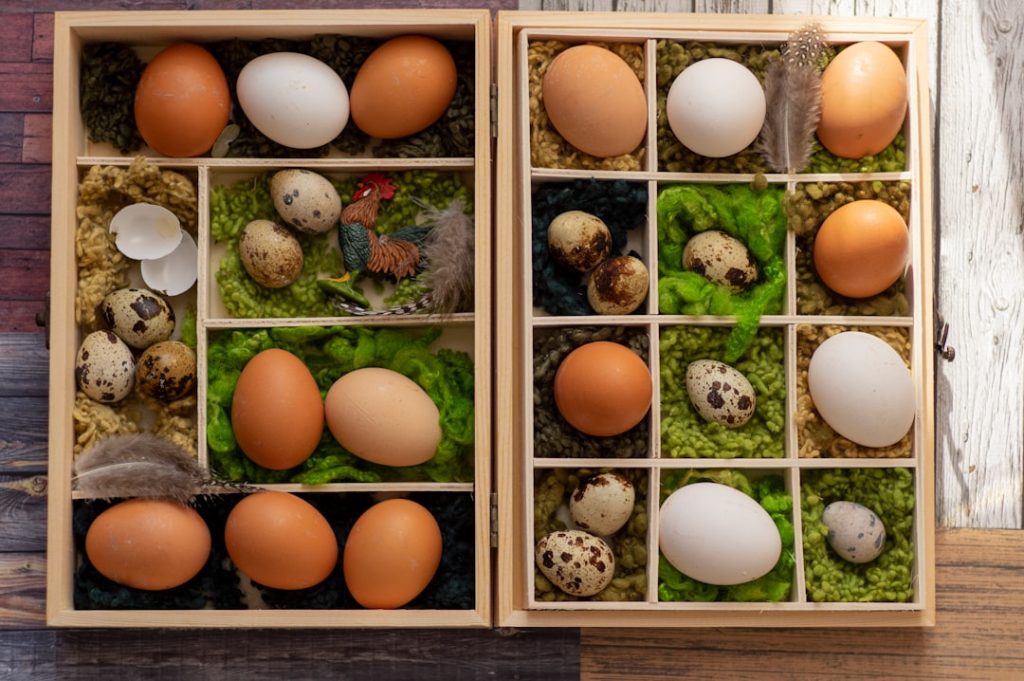Urban and suburban chicken keeping has gained popularity in recent years, necessitating a clear understanding of associated regulations. Local governments often implement specific bylaws governing this practice, which may include restrictions on the number of chickens permitted, coop specifications, and noise limitations. These regulations aim to safeguard both the chickens’ welfare and the community’s well-being.
Compliance with these rules is essential for prospective chicken keepers, as violations can lead to financial penalties or other repercussions. Prior to embarking on chicken keeping, it is crucial to thoroughly investigate and comprehend the regulations applicable to your area. Some localities may have stringent zoning laws that prohibit chicken keeping entirely, while others may require specific conditions to be met for licensing.
Familiarizing oneself with these regulations ensures compliance and helps avoid potential legal complications in the future.
Table of Contents
Key Takeaways
- Understanding the Regulations
- Local regulations regarding keeping chickens vary by location
- Regulations may include restrictions on the number of chickens, coop requirements, and distance from neighboring properties
- Requirements for Keeping Chickens
- Requirements may include providing adequate shelter, food, water, and veterinary care for the chickens
- Proper waste management and noise control may also be required
- Obtaining a Licence
- A licence for keeping chickens may be obtained from the local government or animal control department
- The application process may include providing information about the chicken coop, number of chickens, and property details
- Cost of Obtaining a Licence
- The cost of obtaining a licence for keeping chickens varies by location
- Fees may include an initial application fee and annual renewal fees
- Consequences of Keeping Chickens Without a Licence
- Keeping chickens without a licence may result in fines or legal action
- Unlicensed chickens may be subject to removal by animal control
- Benefits of Having a Licence
- Having a licence for keeping chickens ensures compliance with local regulations
- It may provide peace of mind and legal protection for the chicken owner
- Conclusion: Is a Licence Necessary?
- A licence for keeping chickens is necessary to comply with local regulations and avoid potential consequences
- It provides a legal framework for responsible chicken ownership and ensures the well-being of the chickens
Requirements for Keeping Chickens
Coop Requirements
In many areas, there are specific requirements that must be met in order to keep chickens legally. These requirements often include restrictions on the number of chickens allowed, as well as guidelines for coop size, cleanliness, and placement. For example, some areas may limit the number of chickens to six per household, while others may require a minimum coop size of 2 square feet per chicken.
Distance and Cleanliness Regulations
Coops are often required to be a certain distance from neighboring properties and must be kept clean and free from odors. In addition to these physical requirements, some areas may also have regulations regarding noise and nuisance issues related to keeping chickens.
Regulations on Noise and Nuisance
This can include restrictions on roosters, as well as guidelines for managing odors and waste. It’s essential to consider these regulations to avoid any potential issues with your neighbors.
Importance of Compliance
It’s important to carefully review and understand these requirements before deciding to keep chickens, as failure to comply can result in fines or other consequences.
Obtaining a Licence
In many areas, obtaining a licence is a necessary step for legally keeping chickens. This process typically involves submitting an application to the local government or animal control agency, along with any required documentation or fees. The application may require information about the number of chickens you plan to keep, details about your coop and property, and any other relevant information.
The purpose of obtaining a licence is to ensure that chicken owners are aware of and compliant with the regulations in place for keeping chickens. By requiring a licence, local governments can better monitor and regulate the keeping of chickens, which can help prevent issues such as overcrowding, neglect, or nuisance complaints. Additionally, obtaining a licence can provide peace of mind for chicken owners, knowing that they are in compliance with local laws.
Cost of Obtaining a Licence
The cost of obtaining a licence for keeping chickens can vary depending on the area and the specific requirements in place. Some areas may have a flat fee for obtaining a licence, while others may base the cost on factors such as the number of chickens or the size of the property. In addition to the initial licence fee, there may also be ongoing costs associated with renewing the licence each year.
While the cost of obtaining a licence may seem like an added expense, it’s important to consider the potential consequences of keeping chickens without a licence. In many areas, failure to obtain a licence can result in fines or other penalties, which can far exceed the cost of obtaining a licence in the first place. By budgeting for the cost of obtaining a licence, chicken owners can ensure that they are in compliance with local regulations and avoid any potential legal issues.
Consequences of Keeping Chickens Without a Licence
Keeping chickens without a licence can have serious consequences, including fines, legal action, and even having your chickens removed from your property. In many areas, local governments have strict enforcement measures in place to address unlicensed chicken keeping, as it is considered a violation of local bylaws and regulations. This can result in costly fines and legal fees, as well as potential damage to your reputation within the community.
In addition to financial consequences, keeping chickens without a licence can also have negative impacts on the health and safety of the chickens themselves. Without proper oversight and regulation, there is an increased risk of overcrowding, neglect, and unsanitary conditions for the chickens. This can lead to health issues for the chickens and can also create nuisance complaints from neighbors, further complicating the situation.
Benefits of Having a Licence

Benefits for Chicken Owners
Having a licence provides chicken owners with peace of mind, knowing they are in compliance with local regulations and contributing to a safe and healthy environment for their chickens. It also allows for better oversight and regulation of chicken keeping practices, which can help prevent issues such as overcrowding or neglect.
Benefits for the Surrounding Community
Licensed chicken owners bring a level of accountability and responsibility to the keeping of chickens, helping to prevent nuisance complaints and other issues that can arise from unregulated chicken keeping practices.
Improved Chicken Care and Coop Maintenance
Licensed chicken owners are more likely to be knowledgeable about best practices for chicken care and coop maintenance, contributing to a more positive experience for everyone involved.
Is a Licence Necessary?
In conclusion, obtaining a licence for keeping chickens is an important step for anyone considering this practice. Understanding the regulations in your area and complying with any licensing requirements is crucial for ensuring the health and safety of your chickens, as well as maintaining positive relationships within your community. While there may be costs associated with obtaining a licence, the potential consequences of keeping chickens without one far outweigh these expenses.
By obtaining a licence, chicken owners can demonstrate their commitment to responsible chicken keeping practices and contribute to a positive environment for both their chickens and their neighbors. Additionally, having a licence provides peace of mind knowing that you are in compliance with local laws and regulations. Overall, while it may seem like an extra step, obtaining a licence for keeping chickens is necessary for creating a safe and harmonious environment for everyone involved.
If you’re considering keeping chickens, you may be wondering if you need a license to do so. According to a helpful article on Poultry Wizard, keeping chickens does not typically require a license, but there may be local regulations to consider. It’s always a good idea to check with your local government or agricultural department to ensure you are in compliance with any laws or regulations regarding keeping chickens.
FAQs
Do you need a licence to keep chickens?
No, in most places, you do not need a licence to keep chickens on your property for personal use.
Are there any regulations for keeping chickens?
There may be local regulations or zoning laws that dictate the number of chickens you can keep, the distance of the coop from property lines, and other factors. It’s important to check with your local government or homeowner’s association for specific regulations.
Do I need a permit to build a chicken coop?
In some areas, you may need a permit to build a chicken coop. Check with your local government to find out the specific requirements for your area.
Are there any restrictions on keeping chickens in urban areas?
Some urban areas may have restrictions on keeping chickens, such as limits on the number of chickens allowed or requirements for coop placement. It’s important to check with your local government to understand any restrictions that may apply.
Do I need a licence to sell eggs from my chickens?
If you plan to sell eggs from your chickens, you may need to obtain a licence or permit from your local health department or agricultural agency. Check with your local government to understand the requirements for selling eggs.
Meet Walter, the feathered-friend fanatic of Florida! Nestled in the sunshine state, Walter struts through life with his feathered companions, clucking his way to happiness. With a coop that’s fancier than a five-star hotel, he’s the Don Juan of the chicken world. When he’s not teaching his hens to do the cha-cha, you’ll find him in a heated debate with his prized rooster, Sir Clucks-a-Lot. Walter’s poultry passion is no yolk; he’s the sunny-side-up guy you never knew you needed in your flock of friends!







